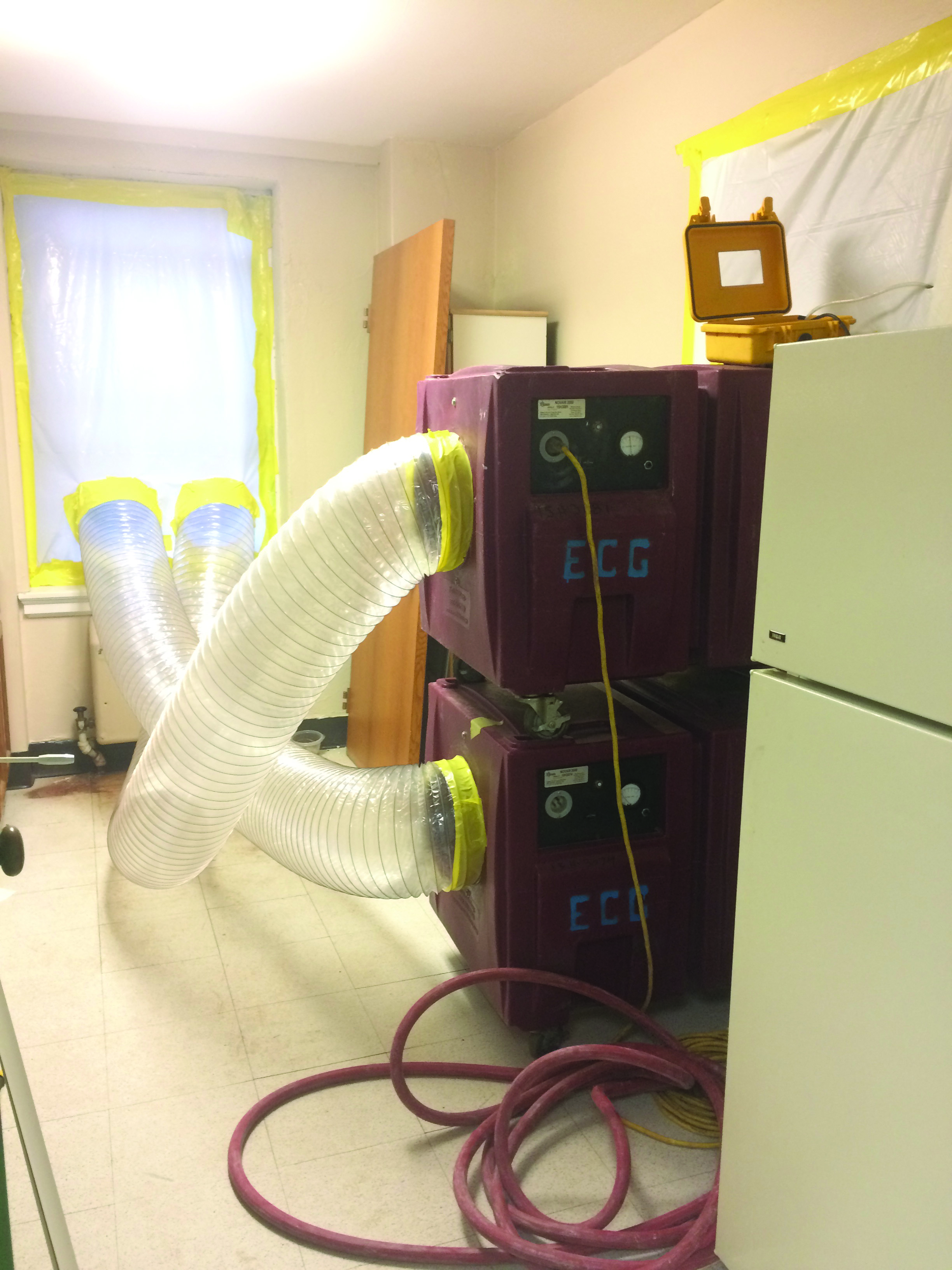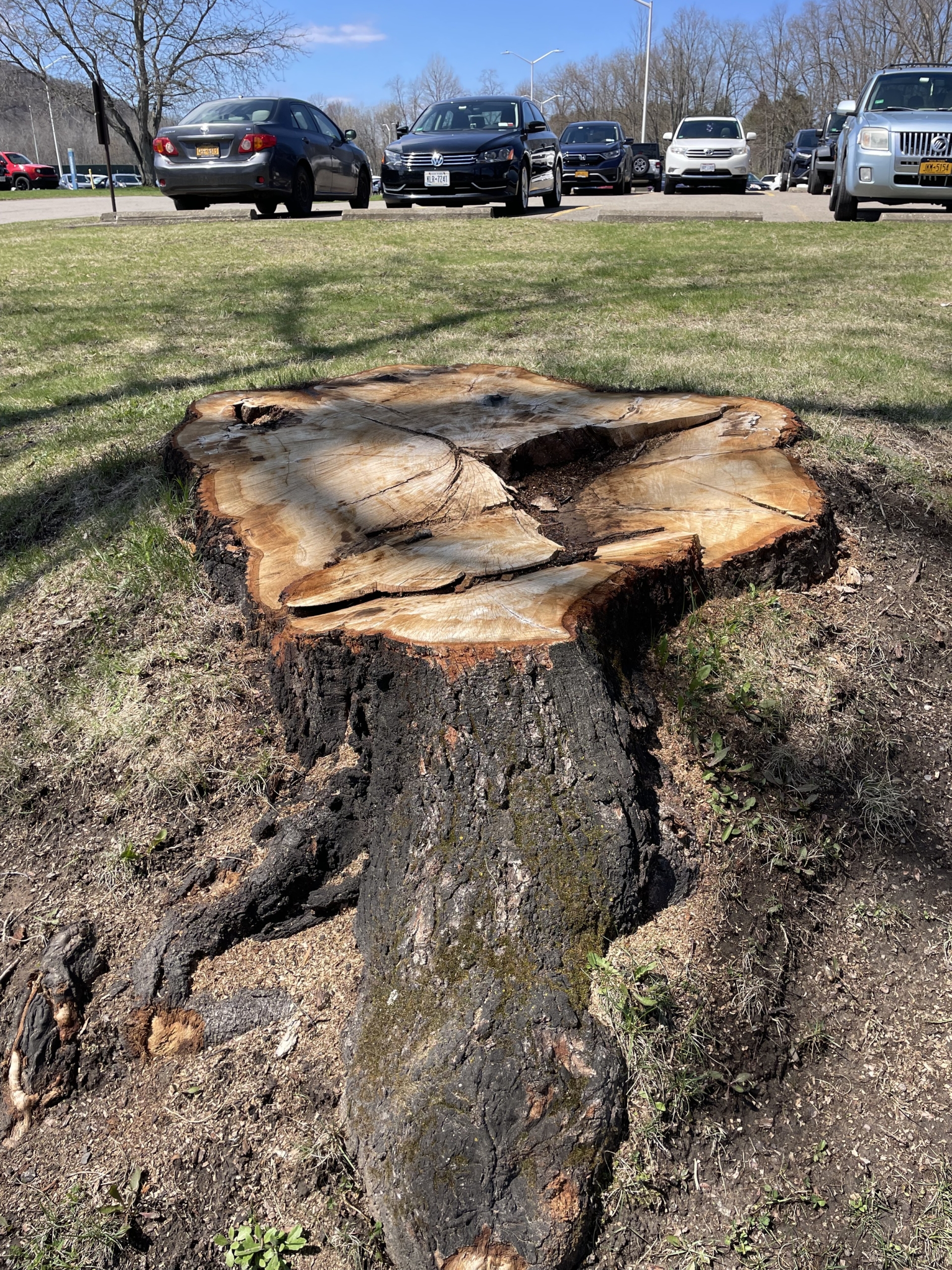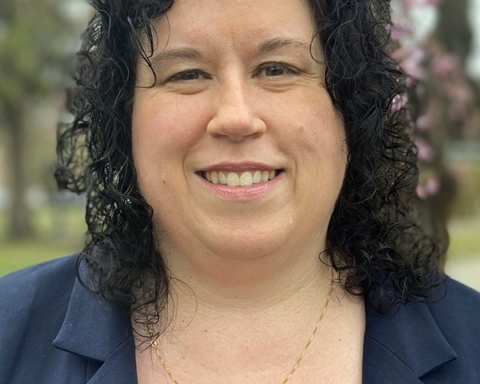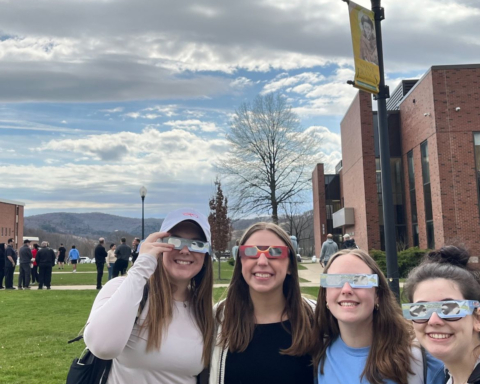As St. Bonaventure University prepares to re-open the upper floors of Francis Hall for student housing, signage posted indicates asbestos abatement is underway.
Tom Missel, chief communications officer of St. Bonaventure University originally told The Bona Venture that only asbestos sampling had taken place, but he later learned that ‘minor abatement’ is currently being done on the unoccupied third and fourth floors of Francis Hall. Images obtained by The Bona Venture show at least some preliminary work being done in the dormitory portion of the building.
The second, third and fourth floors of Francis Hall, the former Christ the King Seminary, closed in fall 2015. The university made the decision to close parts of Francis Hall in an effort to consolidate housing and reduce costs. Since its closing, the second floor has been reopened for graduate student housing.
Francis Hall also houses a cafe, the alumni services office, the university advancement office, the marketing and communications office and the Bonathon call center.
“The asbestos abatement will begin May 20 after Commencement, by which time the handful of people living there will have moved out and the university offices located there will have been relocated,” said Missel.
When questioned where abatement will be happening, Missel confirmed work will be taking place on each floor, but said that most of the abatement will take place on the bottom floor.
Asbestos, which was once a common construction material, can lead to lung cancer and mesothelioma when exposed fibers are inhaled or ingested. Asbestos is often found in insulation, drywall, ceiling and floor tiles as well as paint. The use of asbestos in building materials stopped in the 1970’s. Asbestos-containing items such as ceiling tiles and floor tiles aren’t considered dangerous unless they are damaged or disturbed.
One room currently blocked off for abatement with red tape and danger warnings, room 353 of Francis Hall, is the former room of Sr. Elise Mora, O.S.F. Mora, a lecturer of Spanish who left the university a few years ago.
The signs seen in multiple locations on the third floor, including the door of Mora’s former room, read, “DANGER – ASBESTOS – MAY CAUSE CANCER – CAUSES DAMAGE TO LUNGS – AUTHORIZED PERSONNEL ONLY – WEAR RESPIRATORY PROTECTION AND PROTECTIVE CLOTHING IN THIS AREA.”
“There is no danger to anyone currently working or living in Francis, nor has there been for anyone who lived or worked there before,” said Missel.
The equipment at work in Francis Hall reminded George Lapennas, Ph.D., a former biology professor and former member of the Faculty Senate of when De LaRoche Hall underwent asbestos containment in 2003.
“They can examine to see how much asbestos has been circulated and make sure it’s in the limits of how much asbestos can be allowed,” said Lapennas. “It’s probably the same thing that happened at De LaRoche years ago.”
No firm date for completion was given, but the abatement will need to be completed by June 23 for conferences scheduled to be held in Francis Hall, according to Missel.
“No renovation will take place in areas containing asbestos until the asbestos has been abated,” Missel added. “Some upgrades have been taking place on the third and fourth-floor spaces to prepare them for student occupancy. That includes replacement of window balances, lighting and room furniture.”
Missel said the university has hired fully licensed third-party firms to conduct air monitoring and abatement. Air monitoring is being done by Envoy Environmental Consultants, while abatement will be done by Environmental Construction Group, according to Missel.
By Mike Hogan and Sean Mickey, Sports Editor and Sports Assignment Editor
hoganm17@bonaventure.edu
mickeys17@bonaventure.edu






